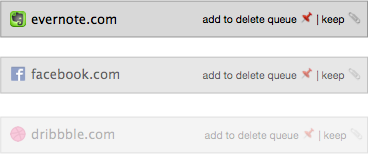Just over 12 months ago I gave myself a challenge: give up spending on all but the essentials for a whole year. I started on Friday 27 November, just as many other people were hitting the shops. It hasn’t always been easy, but a year on I am wealthier and wiser. Embarrassingly, I have also realised just how much money I’ve squandered down the pub, in restaurants and through mindless shopping.
The challenge
As a personal finance journalist people assumed I was good with money but while I wrote a lot about the merits of saving, I wasn’t practising what I preached. I figured that because I earned a good wage, didn’t have any credit card debt and my bank account was in the black, I didn’t need to worry about how much money was leaving my account.
I was spending without thinking, lured in by advertising and the promise that I could spend my way to happiness. I was stuck in a cycle of consumerism – earning money to buy stuff I didn’t really need, which wasn’t making me happy.
Giving up spending for a year was an extreme approach, but the aim was to embrace extreme frugality, shake up my spending habits and overpay my mortgage instead of shopping. I could continue to pay my bills, including mortgages, utilities, broadband, phone bill, charity donations, life insurances, money to help my family and basic groceries.
I’ve learned to shop for food in a better way than I did before – I have planned meals, batch-cooked and improved my dire cooking skills slightly. My husband agreed to do the grocery part of the challenge with me this year and we reduced our weekly shop (which covered three meals each a day, toiletries and house cleaning products) to £31.60 a week.
Michelle McGagh’s cycle became her best friend.
Finding a new way to live
There were two instances in the last year when I had to put my hand in my pocket. The first was on a cycling holiday when I spent £1.95 on a bag of chips because there was nothing to eat in the only local shop except for pork pies. The second was when my next door neighbour – who didn’t know I was on a no-spending challenge – had given a roofer the OK to fix a missing tile between our terrace house and his. The work had already been done and the roofer paid. It cost £100 and we owed him £50 so I paid up. I’m not too upset by the fact I’ve paid out £51.95 all year.
I’m not going to pretend it was easy, especially in the first few months when I tried to live my old life without money and found it wasn’t working. There were plenty of times I wanted to abandon it and indulge in some retail therapy, buy a pint in the pub, or even just purchase a bus ticket instead of getting on my bike for another journey.
But I realised I just had to find new ways to have fun that didn’t include putting my hand in my pocket and defaulting to the pub. Using sites such as Eventbrite I have been to film screenings, wine tasting evenings and theatre productions for free. I’ve also used SRO Audiences to see comedy shows and TV programmes being filmed, and none of it cost me anything.
Living in London I have a wealth of free cultural activities on my doorstep and I’ve been to more art exhibitions this year than ever before – my favourite being First Thursdays, where 150 galleries in east London open late and hold private views and talks.
I even managed a free holiday, cycling the Suffolk and Norfolk coast and camping on beaches. It’s something I’d never done before and probably wouldn’t have, were it not for the challenge – and now I can’t wait to go again next year.
I would like thank those who engaged with me on social media to say they were enforcing their own spending bans
There were lows, such as when I missed gigs and blockbuster films. And I’ve not been able to join friends when they have gone out for a nice meal. There have also been some awkward moments when I’ve turned up to a friend’s house for dinner empty-handed because I couldn’t buy a bottle of wine as a thank you. I did a lot of washing up at my friends’ houses this year as a way of saying thanks for feeding me.
The savings
After my expenses were met, I started overpaying my mortgage. We also took in a lodger, and my savings and their rent have helped us pay off an extra 10% of our loan.
Paying off a large chunk of the mortgage has made me realise that I don’t have to stay indebted to the bank for another 25 years like it wants me to and that I have an option to pay it off earlier. By getting rid of my mortgage faster I not only cut the amount of time I spend paying it off but also the interest I pay to the bank.
I’m grateful to have disposable income to save and feel I should make the most of it – I hope I have encouraged other people to reconsider their spending patterns too. I would like to say thank you to those who engaged with me on social media to say they were enforcing their own spending bans whether on clothes or a month-long ban – they all helped me keep my resolve.
That’s not to say that everyone was happy about my experiment, with some accusing me of poverty tourism, but there is a big difference between poverty and frugality. This experiment was not about living in poverty because poverty isn’t a choice. I could still pay my mortgage, bills and food. The last year has been an experiment in extreme frugality and choosing not to buy, rather than not having a choice.
Finding a new way to live
There were two instances in the last year when I had to put my hand in my pocket. The first was on a cycling holiday when I spent £1.95 on a bag of chips because there was nothing to eat in the only local shop except for pork pies. The second was when my next door neighbour – who didn’t know I was on a no-spending challenge – had given a roofer the OK to fix a missing tile between our terrace house and his. The work had already been done and the roofer paid. It cost £100 and we owed him £50 so I paid up. I’m not too upset by the fact I’ve paid out £51.95 all year.
I’m not going to pretend it was easy, especially in the first few months when I tried to live my old life without money and found it wasn’t working. There were plenty of times I wanted to abandon it and indulge in some retail therapy, buy a pint in the pub, or even just purchase a bus ticket instead of getting on my bike for another journey.
But I realised I just had to find new ways to have fun that didn’t include putting my hand in my pocket and defaulting to the pub. Using sites such as Eventbrite I have been to film screenings, wine tasting evenings and theatre productions for free. I’ve also used SRO Audiences to see comedy shows and TV programmes being filmed, and none of it cost me anything.
Living in London I have a wealth of free cultural activities on my doorstep and I’ve been to more art exhibitions this year than ever before – my favourite being First Thursdays, where 150 galleries in east London open late and hold private views and talks.
I even managed a free holiday, cycling the Suffolk and Norfolk coast and camping on beaches. It’s something I’d never done before and probably wouldn’t have, were it not for the challenge – and now I can’t wait to go again next year.
I would like thank those who engaged with me on social media to say they were enforcing their own spending bans
There were lows, such as when I missed gigs and blockbuster films. And I’ve not been able to join friends when they have gone out for a nice meal. There have also been some awkward moments when I’ve turned up to a friend’s house for dinner empty-handed because I couldn’t buy a bottle of wine as a thank you. I did a lot of washing up at my friends’ houses this year as a way of saying thanks for feeding me.
The savings
After my expenses were met, I started overpaying my mortgage. We also took in a lodger, and my savings and their rent have helped us pay off an extra 10% of our loan.
Paying off a large chunk of the mortgage has made me realise that I don’t have to stay indebted to the bank for another 25 years like it wants me to and that I have an option to pay it off earlier. By getting rid of my mortgage faster I not only cut the amount of time I spend paying it off but also the interest I pay to the bank.
I’m grateful to have disposable income to save and feel I should make the most of it – I hope I have encouraged other people to reconsider their spending patterns too. I would like to say thank you to those who engaged with me on social media to say they were enforcing their own spending bans whether on clothes or a month-long ban – they all helped me keep my resolve.
That’s not to say that everyone was happy about my experiment, with some accusing me of poverty tourism, but there is a big difference between poverty and frugality. This experiment was not about living in poverty because poverty isn’t a choice. I could still pay my mortgage, bills and food. The last year has been an experiment in extreme frugality and choosing not to buy, rather than not having a choice.
Michelle McGagh’s jeans have seen better days
Despite the awkward moments and missing out, this year has been the shove I needed to try new things. The best thing about the challenge is that I’ve been willing to say ‘yes’ more and that I’ve become more adventurous.Having the choice to spend, or not, is a privilege and I have become far more aware of why we buy. I have come to realise that consumerism keeps us chained to our desks, working to earn money to spend on stuff we think will make our lives better. And when the stuff doesn’t make us happy, we go back to work to earn more money to buy something else. The last 12 months have allowed me to step outside this cycle and I can honestly say I’m happier now. I’ve gained confidence and skills, done things I would never have done and met lovely people I wouldn’t have otherwise met.
Many people have said to me, “I bet you can’t wait to get down the shops and have a splurge”, but in all honesty, I’m not interested in hitting the shops. There are a few practical items I need to replace, such as jeans and trainers, and my bike could do with a decent service but that’s about it. I have one more day of no spending to get through and after that there are just two things I will be buying this weekend: a round of drinks for my friends and family to say thanks for their support, followed by a flight to see my grandad in Ireland.
A year of no spending has taught me what things I really need, and it really isn’t that much.
Five things I really missed
There were lots of big events and nights out I expected to miss out on, but there were some small, more everyday items that I hadn’t expected to miss quite so much.
Decent curry: I’m not the best cook and my home-made curries just can’t compete with my local takeaway.
Fresh flowers: I realised how much I’d missed flowers at home when I was sent a bunch for my birthday – they brightened my home and my mood.
Moisturiser: this didn’t make it on to the “essentials” list, which was probably a mistake judging by my wind-whipped face.
Perfume: my Lidl deodorant stood up to the test of cycling everywhere but a spritz of perfume may have helped me feel a bit more human and less of a sweaty mess.
The bus: while I love cycling, not being able to get on the bus in the cold and rain could be trying; taking the bus, especially to meetings where I had to look smart, would have been a big plus.
Despite the awkward moments and missing out, this year has been the shove I needed to try new things. The best thing about the challenge is that I’ve been willing to say ‘yes’ more and that I’ve become more adventurous.Having the choice to spend, or not, is a privilege and I have become far more aware of why we buy. I have come to realise that consumerism keeps us chained to our desks, working to earn money to spend on stuff we think will make our lives better. And when the stuff doesn’t make us happy, we go back to work to earn more money to buy something else. The last 12 months have allowed me to step outside this cycle and I can honestly say I’m happier now. I’ve gained confidence and skills, done things I would never have done and met lovely people I wouldn’t have otherwise met.
Many people have said to me, “I bet you can’t wait to get down the shops and have a splurge”, but in all honesty, I’m not interested in hitting the shops. There are a few practical items I need to replace, such as jeans and trainers, and my bike could do with a decent service but that’s about it. I have one more day of no spending to get through and after that there are just two things I will be buying this weekend: a round of drinks for my friends and family to say thanks for their support, followed by a flight to see my grandad in Ireland.
A year of no spending has taught me what things I really need, and it really isn’t that much.
Five things I really missed
There were lots of big events and nights out I expected to miss out on, but there were some small, more everyday items that I hadn’t expected to miss quite so much.
Decent curry: I’m not the best cook and my home-made curries just can’t compete with my local takeaway.
Fresh flowers: I realised how much I’d missed flowers at home when I was sent a bunch for my birthday – they brightened my home and my mood.
Moisturiser: this didn’t make it on to the “essentials” list, which was probably a mistake judging by my wind-whipped face.
Perfume: my Lidl deodorant stood up to the test of cycling everywhere but a spritz of perfume may have helped me feel a bit more human and less of a sweaty mess.
The bus: while I love cycling, not being able to get on the bus in the cold and rain could be trying; taking the bus, especially to meetings where I had to look smart, would have been a big plus.





